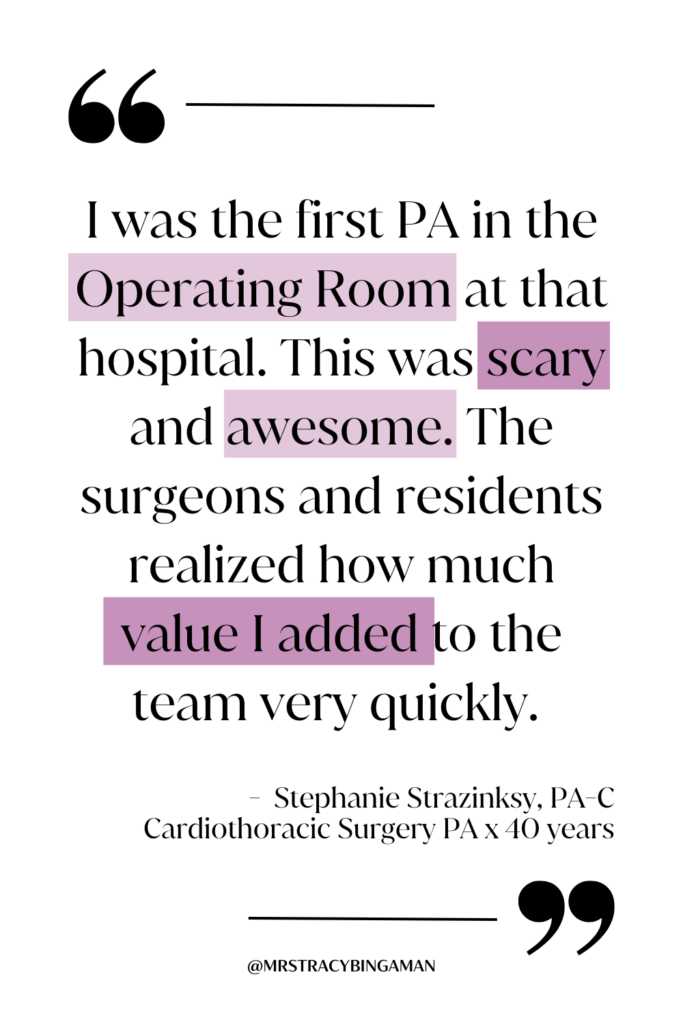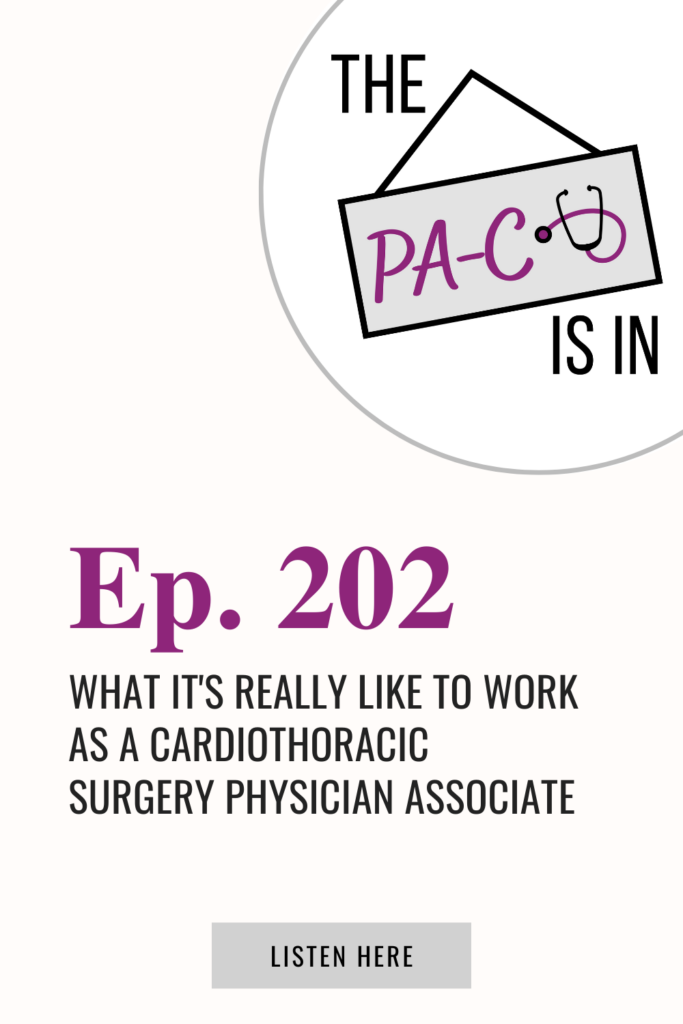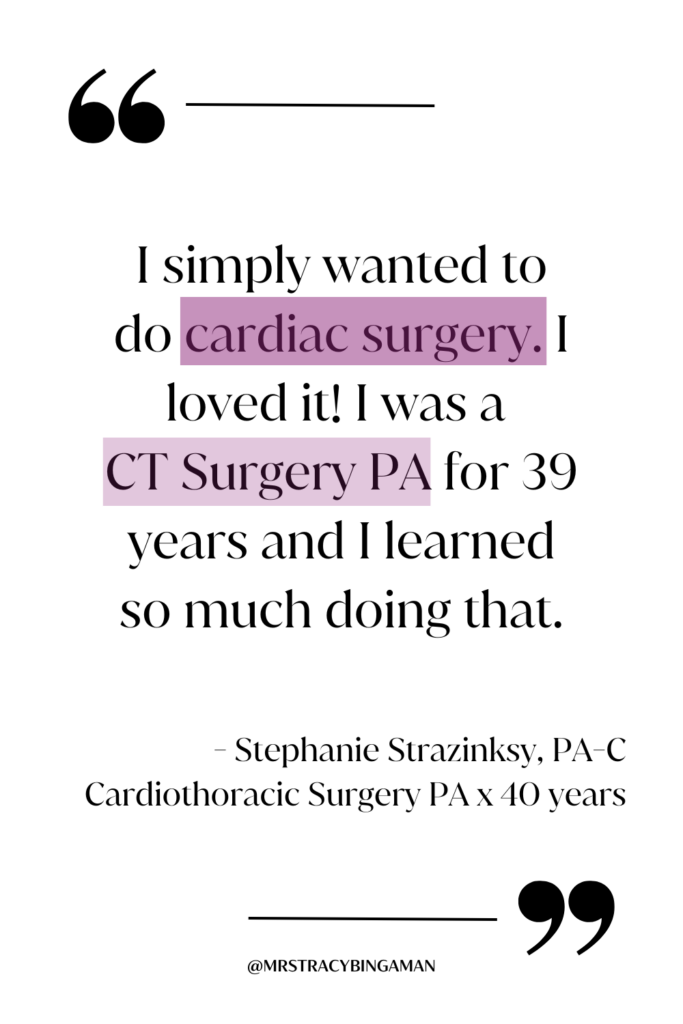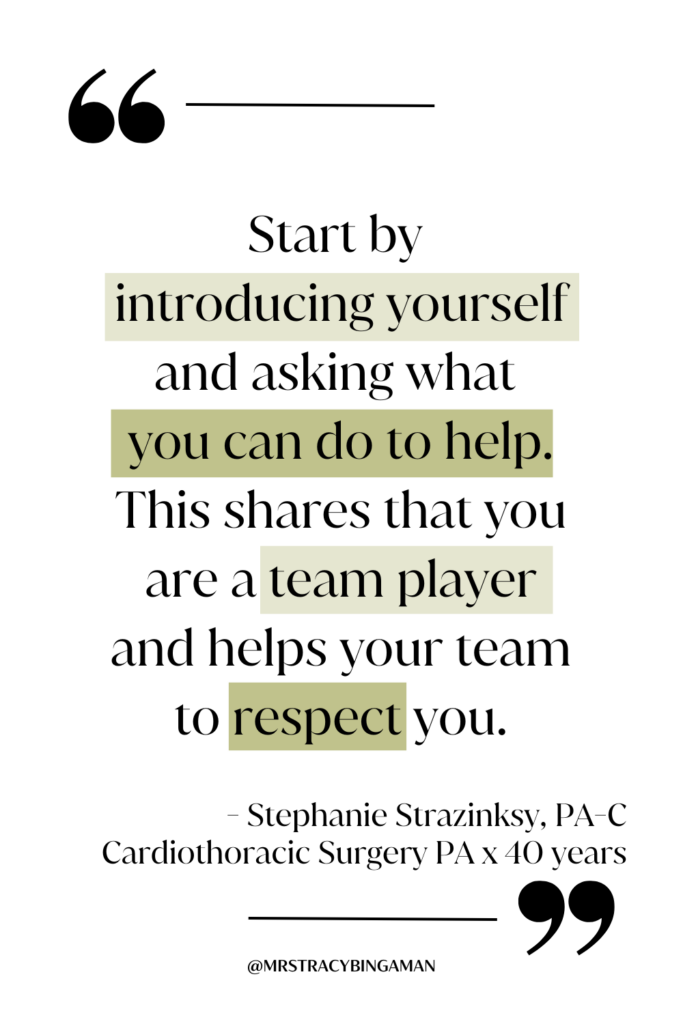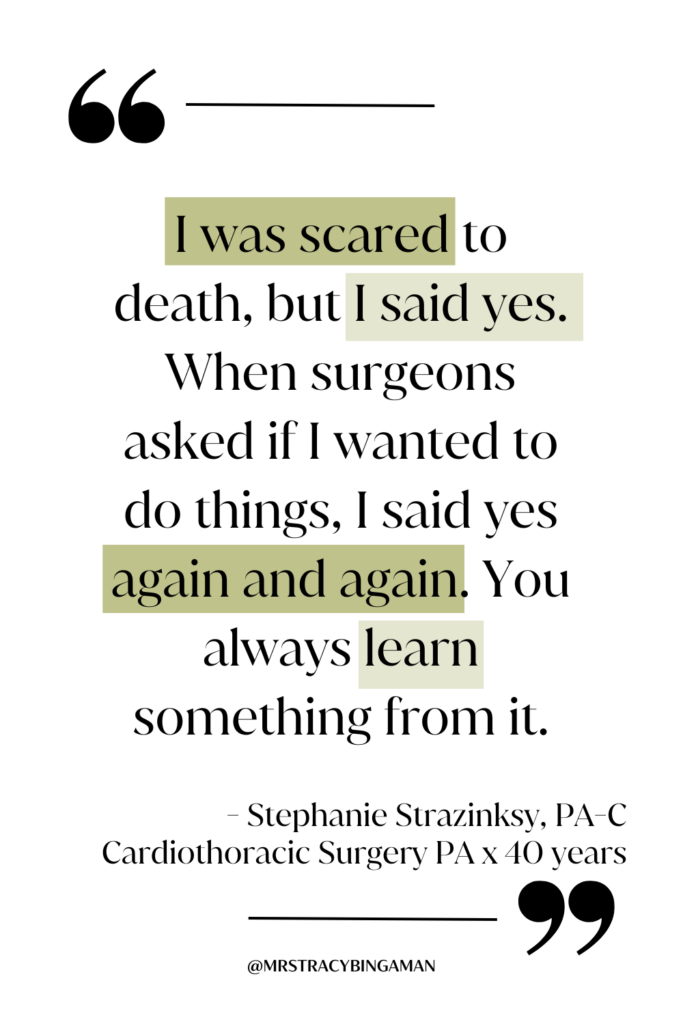Thirty nine years as a cardiothoracic surgery physician associate leads to a lot of learning, personal growth and changes in healthcare. After graduating from high school in 1978, Stephanie was cared for by a physician assistant for her entrance physical and evaluation in order to be admitted into high school.
The rest, they say, is history. Stephanie Strazinsky graduated in 1982 from PA school and started out in general surgery. She quickly transitioned to cardiothoracic surgery where she would spend the next four decades of her career.
Watch on YouTube

Forging a Path
The first PA in the operating room at the new hospital where she would be practicing in cardiothoracic surgery. Being the first of anything is simultaneously exciting and can come with a specific set of challenges.
The physician overseeing the surgical residents worried that Stephanie joining the team as a CT surgery PA would interfere with the residents getting the experience they needed. As it turns out (and as so many practicing PAs, administrators and physicians now know), adding a PA to the team enhances the patient care experience and education of medical and surgical residents.
How to Be Attractive to Employers
Starting with skill. Doing a good job at your existing role (even if that is as a student on rotations) will be attractive to future employers.
Stephanie received her job offer as a new graduate PA in general surgery from the CT surgeons who rotated through her hospital. They had first hand knowledge of her abilities and interest in taking care of patients.
She reports “I kept my head down, my mouth shut and my eyes and ears open.” Focusing on the important work helped her to add value. This led to a career of lifelong learning and an interest in being helpful and a true team player.
The Operating Room is a unique environment within the hospital. Stepping into the OR she took on that embodiment of volunteering to help.
How to Be a Team Player
Introduce yourself to those on the team. Identify who you are and what your role is. This goes for leaders of the team, support staff, nurses and everything in between.
When making requests, Stephanie found that softening her requests with the phrase “when you get a minute” when asking for something. Combine that with a willingness to help increased her buy in to the team and also bolstered the respect of the nurses on her team.
Early Career Advice for PAs
Considering making a big move from one job or specialty to another? Give it a try. Go and shadow. Do a working interview.
If you start general and get more specific you can have a taste of what these adjacent specialties are doing in taking care of surgery. This works for medical and surgical roles and specialties.
Another thing to do on the cusp of making a career change, think about what your life would be like in the new schedule and specialty. Stephanie’s advice as a PA on the tail end of her career is to take the chance and give it a try.
Stop holding yourself back based on your own limiting beliefs. You are more able than you realize.
Stephanie relays that when an attending asked her if she wanted to do something she “was scared to death but just said yes.” This can-do attitude and willingness to learn served her well throughout her career.
Work-Life Balance
Stephanie is the first one to admit that her career in Cardiothoracic surgery was anything but balanced. After surviving breast cancer and working throughout her treatment, she had an opportunity to start a new CT surgery program across the country.
She went on to adopt a daughter and carve out a non-operative spot for her in the clinic seeing CT surgery patients. This afforded better work-life balance for her and her daughter.
Being able to make moves on purpose and with intention of building a life that works for you during this season is a great benefit of the physician assistant career. Moves within your specialty or to another specialty can be a great strategy when you need better work-life integration.
Trust Your Gut
If it feels right in your gut, do it. Whether that is about balance or a new position, taking a job or taking a chance, if deep in your gut that intuition, that still small voice is telling you to do it, go for it!
Sometimes you can’t logic your way to the “right choice” because there isn’t an inherently “wrong choice”. Leaning into that inner knowledge in life and your career is a honed skill.
Stephanie leveraged that skill when job opportunities presented themselves throughout her career. Choose wisely, with logic and trust your gut and the feelings that you have about options.
Anticipate Change
Her parting piece of advice is that people change and jobs change. It’s unreasonable to expect to practice medicine as a PA in the exact same capacity, the same specialty and setting throughout a 40-year-long career.
Expect that you will change and grow. Your departments and jobs will do the same. If you grow together, great! If you grow out of each other, develop other interests or need a different work-life integration, that’s great, too!
Expect to change jobs. Debating whether to leave yours? See this post on how to know when it’s time to quit your job and here’s a resource for you to help you decide if you should stay or go.
Be on the lookout for your gut whispering that it’s time to start looking for new jobs. Longevity and sustainability in your career depends on you making changes throughout your career. Don’t sleep on helping your career to fit your life. Life is too short to squeeze in around the hours that you are working!
Pin for Later
